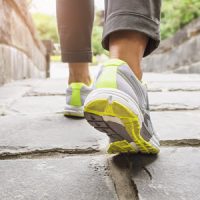Florida Trip And Fall Accidents

While the terms “slip and fall” and “trip and fall” are used interchangeably, they are actually not the same. The primary difference has to do with the cause of the fall, which makes the distinction between the two types of fall important to a premises liability claim, where cause plays a critical role in establishing fault.
What is a Trip and Fall Accident?
Slip and fall accidents occur when someone’s foot comes into contact with a transitory or movable substance on the floor, causing him or her to slip and then fall. These kinds of accidents often involve wet or icy floors, muddy paths, and loose or worn carpets. Slip and fall accidents usually result in backward falls, so it is more likely that a victim will suffer from certain kinds of injuries, like brain, neck, back, and hip injuries.
Trip and fall accidents, on the other hand, occur when a person’s foot comes into contact not with a transitory substance, like liquid, but with an immovable or grounded object, or an uneven walking surface that causes him or her to misstep and eventually fall. Examples of conditions that could cause trip and fall accidents include:
- Loose floor tiles, mats, or rugs;
- Protruding floor boards or nails;
- Clutter left on the floor;
- Boxes or heavy objects that impede foot traffic;
- Uneven stairs;
- Misplaced furniture;
- Unmarked curbs and ramps;
- Cracks in the sidewalk or asphalt; and
- Potholes.
Because trip and fall accidents tend to result in a unique downward trajectory for victims, people often have more control over how they land. For this reason, trip and fall accident victims tend to suffer external injuries, like facial and head trauma, as well as fractures to the hands, fingers, arms, elbows, and knees. These injuries can still, however, be painful, difficult, and expensive to treat, while also forcing injured parties to take time off from work while they heal.
Responsibility for Trip and Fall Accidents
In Florida, property owners are required to take reasonable steps to keep their property safe for invited guests. This means that they must conduct routine inspections, engage in proper maintenance, and repair any dangerous hazards on their premises. If a condition cannot be immediately repaired, then a property owner will still need to post signs or otherwise warn visitors of the dangers. Property owners who fail to abide by these rules and who leave tripping hazards on their premises can be held liable by injured parties, who could be entitled to damages compensating them for medical bills, lost wages, property damage, and even pain and suffering.
Call Our Tampa Trip and Fall Lawyers
If you were injured on someone else’s property in a trip and fall accident and have questions about your recovery options, please call our Tampa trip and fall lawyers at Anderson & Anderson today. We have been helping Florida residents hold negligent property owners accountable for more than 40 years and look forward to using that experience to help you seek compensation for your own accident-related injuries.
Sources:
leg.state.fl.us/Statutes/index.cfm?App_mode=Display_Statute&URL=0700-0799/0768/Sections/0768.0755.html
medlineplus.gov/traumaticbraininjury.html
